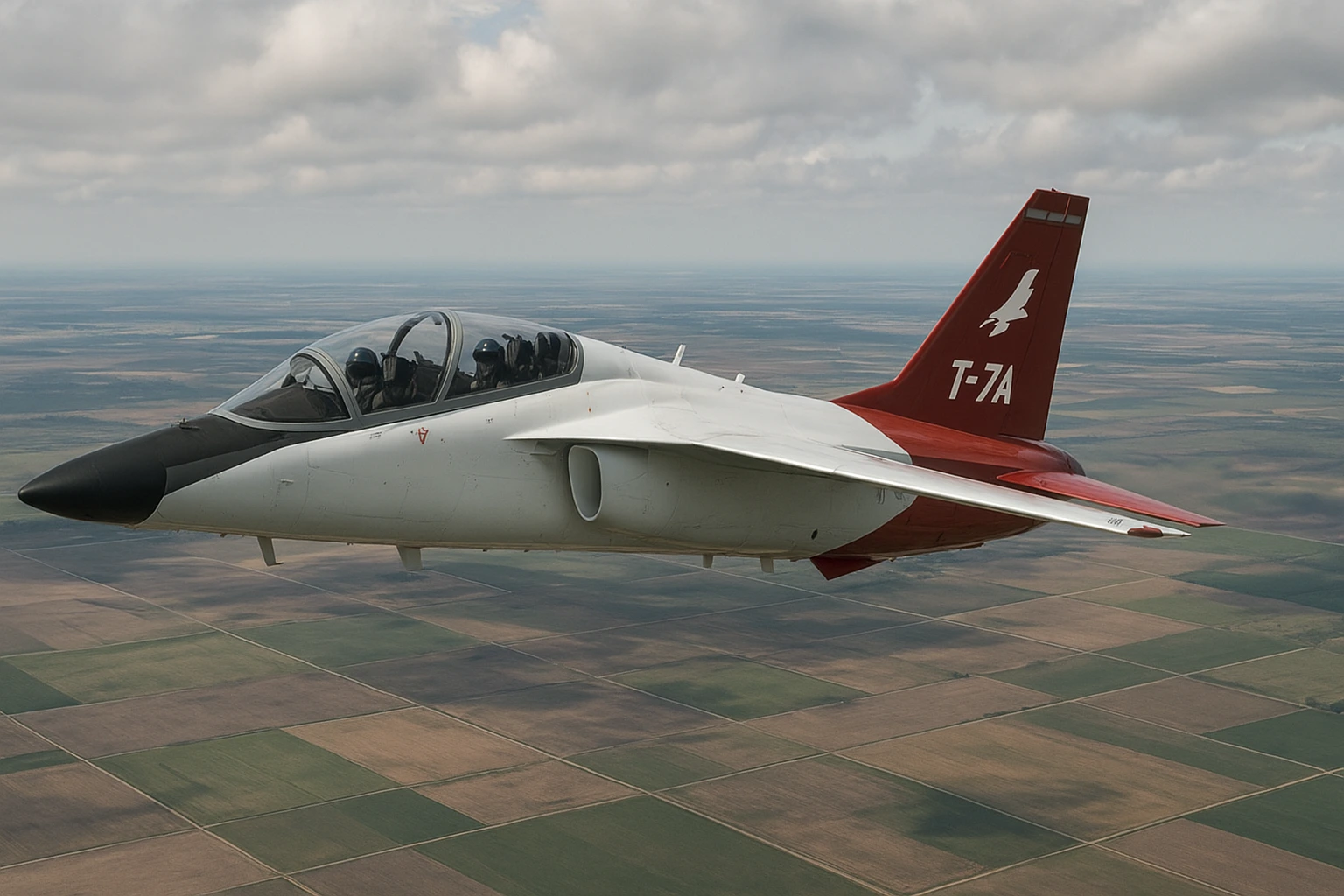Dubai, United Arab Emirates — Boeing (BA.N) is close to announcing a strategic partnership to pursue an international sales opportunity for its T-7 advanced trainer, company executives said Sunday, highlighting rising global demand for lightweight military training jets.
At a briefing ahead of the Dubai Airshow, Boeing officials confirmed the partnership announcement is expected within the next week. While details remain under wraps, the move signals growing interest in the T-7 trainer across Europe and Asia.
“Watch this space,” said Steve Parker, CEO of Boeing Defense, Space & Security, when asked whether the imminent partnership would address Britain’s trainer needs. He declined to provide additional information.
Boeing, in collaboration with Sweden’s Saab (SAABb.ST), developed the T-7 advanced trainer specifically for the US Air Force. The jet is designed to prepare pilots for modern fighter aircraft and is noted for its advanced simulation capabilities, lightweight design, and cost efficiency.
Reuters reported in July that Boeing and Saab were in talks with Britain’s BAE Systems (BAES.L) regarding a potential collaboration to replace the United Kingdom’s aging Hawk trainer fleet. The Hawk, whose production ended in 2000, remains a recognizable aircraft due to its use by the Red Arrows display team.
In June, a British defence strategy review recommended that the Hawk fleet be replaced and indicated the government would welcome proposals from UK based suppliers. BAE Systems, however, has not yet decided whether to develop a new jet domestically.
Military aviation analysts say Boeing’s potential partnership could provide a competitive edge in the global trainer market, where demand is rising for jets that balance performance with affordability.
“Advanced trainers like the T-7 offer modern training capabilities at lower operating costs than older platforms,” said Dr. Emma Carlisle, a defence analyst at the International Institute for Strategic Studies. “A joint bid with BAE could position Boeing strongly in Europe while maintaining its footprint in Asia.”
Boeing officials indicated that overall demand for trainer aircraft is expanding across multiple regions. The T-7 is competing in a market increasingly focused on multirole adaptability, digital flight systems, and reduced logistical burdens.
The global trainer aircraft market has grown steadily over the past decade. According to Defence Market Analytics, demand for advanced jet trainers is projected to rise by 5 percent annually through 2030. Europe and Asia represent key growth areas due to modernizing air forces and the retirement of legacy fleets.
For context, the Hawk fleet has been in service with the Royal Air Force since the mid-1970s. Its longevity underscores the urgency for the UK to identify a capable replacement. Meanwhile, other countries, including India and South Korea, are actively upgrading their trainer fleets, offering additional opportunities for Boeing and Saab.
UK based defence expert James Rowland emphasized the significance of international partnerships in the military aviation sector. “Collaborations between established aerospace companies are increasingly common,” he said. “They allow for shared development costs and broader export potential, which is critical when replacing fleets like the Hawk.”
Meanwhile, at a recent industry seminar in Dubai, Saab officials expressed optimism about the T-7’s international appeal. “Our focus is on delivering a cost effective, next generation training solution,” said Anna Lindholm, Saab’s head of international sales. “Interest from multiple countries reflects the aircraft’s versatility and modern design.”
Industry observers expect Boeing and Saab’s joint efforts to accelerate as countries seek to modernize their training aircraft. Analysts also anticipate that if the partnership includes BAE Systems, the UK could leverage domestic expertise while benefiting from an established platform like the T-7.
“The next few months will be crucial,” Carlisle said. “Winning international contracts requires not only a capable aircraft but also the right industrial and political partnerships.”
The partnership, once officially announced, could set a precedent for future collaborations between US and European defence manufacturers. It also reinforces Boeing’s strategic commitment to the trainer aircraft sector, where competition is intensifying.
Boeing’s forthcoming announcement of a partnership to bid for international T-7 trainer opportunities reflects a broader trend in global military aviation toward modern, cost effective training solutions.
With rising demand in Europe and Asia and potential collaborations with BAE Systems, the T-7 could play a central role in replacing legacy trainer fleets like the UK’s Hawk.
While details are still emerging, analysts and industry officials agree the partnership could reshape the competitive landscape for advanced trainer jets in the coming years.
